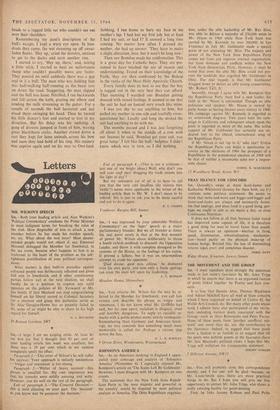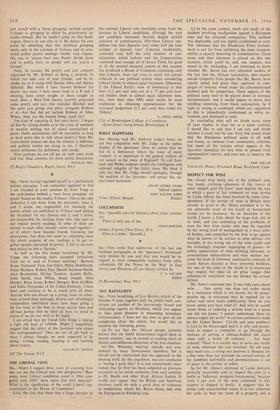SIR,--You will probably close : this correspondence shortly. and I for
one will be glad—because, as Mr. Lucie-Smith says, there are more practical things to do. But I hope you will give me this opportunity to correct Mr. John Tripp, who shows a really amazing facility for point-missing.
First, he links Jeremy Robson and Paul Potts
and myself with a 'loose grouping' centred around Tribune—a grouping in which he gratuitously in- cludes himself. But he needn't jump on this band- wagon; there's no one else on it. He denies his own point by admitting that this mythical grouping meets only in the columns of Tribune and at occa- sional public poetry readings—hardly very cliquey. Oh, yes, in 'saloon bars' too. Poets! Drink alone and in public bars, or people will say you're a Group!
Next, he accuses the poetry and jazz concerts organised by Mr. Robson of being a network 'in which you take care of your friends,' and he in- cludes me in it along with Dannie Abse and Adrian Mitchell. But while I have known Robson for nearly two years I have never read at a P and I evening, have never sought or been sought to read. Also, a West End theatre recently presented some poetry and jazz that included Mitchell and the same jazz group that plays alongside Robson et al.—but that did not include Robson or Abse. Where, then, are the friends being cared for?
I'm tired of repeating it, but once more: I began all this by raising doubts as to the value of seminars in creative writing,, not of casual associations of poets. (Such associations will be inevitable as long as most poets like to talk about poetry.) Now Mr. Lucie-Smith assures me that his seminar is different, and politely invites me along to see. I therefore return politeness for politeness, and accept.











































 Previous page
Previous page